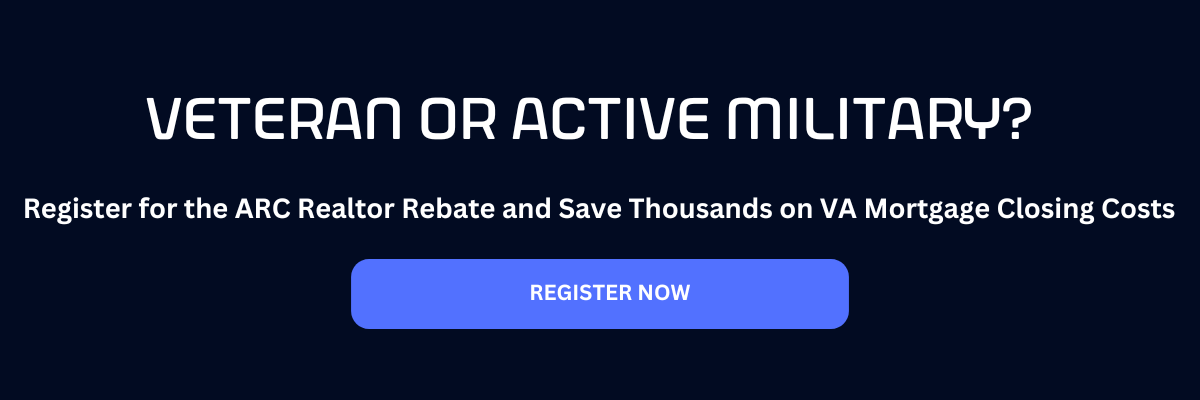FHA vs VA Loans: Which Mortgage Option is Best for You?

Are you a prospective homebuyer trying to decide between an FHA loan and a VA loan? Both of these government-backed mortgage programs offer attractive benefits, especially for first-time buyers.
However, there are some key differences to understand before determining which one aligns best with your financial situation and homeownership goals.
In this article, we’ll take an in-depth look at how FHA loans and VA loans stack up in terms of eligibility requirements, down payment minimums, mortgage insurance, interest rates, and more. By the end, you’ll have a clear understanding of the pros and cons of each loan type so you can make an informed decision.
Buying or Selling a Home?
Register Below for Your Cash Back Rebate Worth Thousands of Dollars After Closing!
(a benefit you are already entitled to)
What is an FHA Loan?
An FHA loan is a mortgage that is insured by the Federal Housing Administration (FHA). The FHA is a government agency within the U.S. Department of Housing and Urban Development (HUD). Because the FHA insures these loans, lenders are able to offer more favorable terms to borrowers, such as low down payment requirements and relaxed credit standards.
FHA loans are popular among first-time homebuyers as well as those with less-than-perfect credit or limited funds for a down payment. To qualify for an FHA loan, you typically need:
- A credit score of at least 500-580 (depending on down payment)
- Proof of steady income and employment
- Debt-to-income ratio below 43%
- The home must be your primary residence
- The home must meet FHA property standards and loan limits
One potential drawback of FHA loans is that borrowers are required to pay for mortgage insurance. This includes an upfront premium of 1.75% of the loan amount, plus annual premiums for the life of the loan (unless you put down 10% or more).
What is a VA Loan?
VA loans are mortgages guaranteed by the U.S. Department of Veterans Affairs (VA). They are available to eligible active-duty service members, veterans, and surviving spouses.
The VA loan program was created in 1944 to help returning service members purchase homes with little or no money down. Today, it remains one of the best mortgage options for those who have served our country. The main benefits of VA loans include:
- No down payment required in most cases
- No private mortgage insurance (PMI)
- Competitive interest rates
- Relaxed credit requirements compared to conventional loans
- No maximum loan amount (only limited by what you can afford)
To be eligible for a VA loan, you must meet the minimum service requirements, which vary depending on when you served. You’ll also need to obtain a Certificate of Eligibility (COE) from the VA to prove to lenders that you qualify for the program.
While VA loans don’t require a down payment or monthly mortgage insurance, they do have a one-time funding fee. The amount of the fee ranges from 1.4% to 3.6% of the loan, based on your service history, loan amount, and down payment (if any). However, some borrowers, such as those with service-connected disabilities, are exempt from paying the VA funding fee.
Key Differences Between FHA and VA Loans
Now that we’ve covered the basics of how FHA and VA loans work, let’s dive into the key differences between them:
Eligibility
The main distinguishing factor between FHA and VA loans is who can qualify for them. FHA loans are open to any borrower who meets the credit, income, and down payment requirements – regardless of military background. VA loans, on the other hand, are exclusively for eligible military borrowers as described above.
Down Payment
Another major difference between these two loan programs relates to down payment requirements. FHA loans require a minimum down payment of 3.5% for borrowers with a credit score of 580 or higher. If your score is between 500-579, you’ll need to put down at least 10%.
With a VA loan, you can finance up to 100% of the home’s value in most cases, meaning no down payment is needed. This is a huge advantage for borrowers who don’t have a lot of savings on hand.
Mortgage Insurance
As mentioned, FHA loans require both an upfront and annual mortgage insurance premium (MIP). The upfront MIP is 1.75% of the loan amount and can be rolled into the mortgage.
The annual MIP ranges from 0.45% to 1.05%, depending on loan term and amount. The MIP usually remains for the life of the loan, unless you put down 10% or more.
VA loans have no private mortgage insurance requirement so you can save money on your mortgage this way. However, there is a one-time VA funding fee that serves a similar purpose – to offset losses and keep the program running for future generations of military homebuyers. The funding fee can be financed into the loan amount.
Loan Limits
Both FHA and VA loans have limits on the amount you can borrow, which vary by county. For 2024, the FHA loan limit for a single-family home ranges from $498,257 to $1,149,825, depending on the county.
VA loan limits were eliminated for most borrowers in 2020. However, they still apply to veterans with remaining VA entitlement who have one or more active VA loans, or who have defaulted on a prior VA loan. In these cases, the standard VA loan limit is $726,200 for most counties in 2023.
Interest Rates
Interest rates on government-backed loans like FHA and VA tend to be lower than conventional loans, since part of the risk is removed for lenders. Between FHA and VA, rates are typically a bit lower for VA loans, but the difference is usually small.
As with any loan, your individual interest rate will depend on multiple factors, including your credit score, debt-to-income ratio, loan-to-value ratio, loan size and type, and market conditions. Shopping around with multiple lenders can help you find the most competitive rate.
The Bottom Line
So, which loan option is right for you – FHA or VA? Ultimately, the best mortgage for your situation will depend on your unique eligibility, financial profile, and home buying goals.
If you have served in the military and can qualify for a VA loan, it’s usually the better choice. A VA loan’s main advantages are the zero down payment option, lack of mortgage insurance, and slightly lower average rates compared to FHA loans. These benefits can add up to substantial savings over the life of your loan.
However, an FHA loan can still be an excellent option for borrowers with little cash on hand for a down payment and/or a lower credit score. And if you don’t have military experience, it may be your only choice between the two programs.
Of course, FHA and VA loans aren’t your only options. You may also want to consider a conventional loan, especially if you have good credit and can afford a larger down payment. By carefully comparing loan offers from several lenders, you’ll be in the best position to choose the right mortgage product for your needs.
No matter which type of loan you choose, becoming a homeowner is an exciting milestone. Taking the time to understand your options and get your finances in order beforehand will help set you up for success. Here’s to finding the perfect mortgage – and home – for you and your family.
